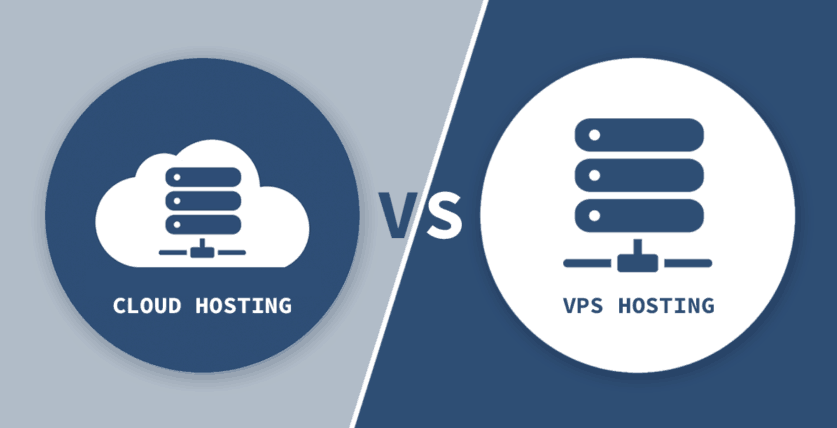
Introduction: Understanding Cloud VPS and Standard VPS
Virtual Private Servers (VPS) have revolutionized the way businesses host and manage their websites and applications. VPS provides the benefits of dedicated servers while being more affordable and scalable. However, within the realm of VPS, there are further distinctions to be made. This article aims to explore and compare Cloud VPS and Standard VPS, highlighting their differences and helping readers make informed decisions when choosing between the two.
Scalability: The Key Differentiator Between Cloud VPS and Standard VPS
Scalability is a crucial aspect when considering hosting solutions. Cloud VPS offers superior scalability compared to Standard VPS. With Cloud VPS, resources can be easily scaled up or down in real-time, allowing businesses to adapt to fluctuating demands effortlessly. In contrast, Standard VPS has limited scalability, as it relies on a fixed set of resources that cannot be expanded or contracted dynamically. The ability to scale resources in the cloud ensures optimal performance and eliminates the risk of resource shortages during peak times.

What are the differences between Cloud VPS and standard Virtual Private Server
Resource Allocation: Contrasting Approaches in Cloud VPS and Standard VPS
Resource allocation is another important factor to consider when choosing between Cloud VPS and Standard VPS. In Cloud VPS, resources are distributed across a network of interconnected servers. This distribution ensures that resources are readily available and can be allocated flexibly based on demand. On the other hand, Standard VPS operates on a single physical server, which means resources are more limited and can lead to potential bottlenecks if not properly managed. Cloud VPS offers a more efficient and reliable approach to resource allocation.
Performance: Analyzing the Speed and Efficiency of Cloud VPS and Standard VPS
Performance is a critical aspect of any hosting solution. Cloud VPS outshines Standard VPS in terms of speed and efficiency. In Cloud VPS, the workload is distributed across multiple servers, reducing the risk of overloading a single server and impacting performance. Moreover, Cloud VPS providers often utilize advanced caching technologies and content delivery networks (CDNs) to further enhance performance. Standard VPS, on the other hand, may suffer performance limitations due to the reliance on a single server and the potential for resource contention.
Fault Tolerance: Comparing the Resilience of Cloud VPS and Standard VPS
Fault tolerance refers to the ability of a system to withstand and recover from hardware or software failures. Cloud VPS offers higher fault tolerance compared to Standard VPS. In Cloud VPS, data is mirrored across multiple servers, ensuring redundancy and minimizing the risk of data loss in the event of a hardware failure. Additionally, if one server becomes inaccessible, the workload can seamlessly be transferred to another available server. Standard VPS, being reliant on a single physical server, is more susceptible to failures and requires manual intervention for recovery.
Cost Structure: Examining the Financial Aspects of Cloud VPS and Standard VPS
Cost is a significant consideration when choosing a hosting solution. Cloud VPS and Standard VPS have different cost structures. Cloud VPS follows a pay-as-you-go model, where businesses only pay for the resources they consume. This flexible pricing model allows for cost control and eliminates the need for upfront investments. Standard VPS typically involves a fixed monthly fee, regardless of resource utilization. While this can be advantageous for predictable workloads, it may result in unnecessary expenses if resources are underutilized.
Flexibility: Evaluating the Versatility of Cloud VPS and Standard VPS
Flexibility is vital for businesses that require the ability to rapidly adapt to changing needs. Cloud VPS offers unparalleled flexibility compared to Standard VPS. With Cloud VPS, businesses can easily scale resources, add or remove servers, and customize configurations on the fly. This adaptability allows for seamless growth and ensures that the hosting environment can keep up with evolving requirements. Standard VPS, due to its fixed nature, lacks the same level of versatility and may require manual adjustments that can be time-consuming.
Management: Distinguishing the Level of Control in Cloud VPS and Standard VPS
The level of control over the hosting environment is an essential consideration for businesses. Cloud VPS and Standard VPS offer different management approaches. In Cloud VPS, management responsibilities are typically shared between the provider and the customer. The provider takes care of hardware and infrastructure maintenance, while the customer manages their applications and data. Standard VPS, on the other hand, grants the customer full control over the server, including software installations and system configurations. This increased control may be beneficial for technical users who require a high level of customization.

Distinguishing the Level of Control in Cloud VPS and Standard VPS
Security: Weighing the Safety Measures in Cloud VPS and Standard VPS
Security is of utmost importance when selecting a hosting solution. Cloud VPS and Standard VPS employ different security measures. Cloud VPS providers often implement advanced security protocols, such as firewalls, intrusion detection systems, and regular data backups. Additionally, the distributed nature of Cloud VPS ensures that data is protected even in the event of a hardware failure. Standard VPS also provides security features, but the reliance on a single server poses a higher risk in case of a security breach or hardware failure.
Reliability: Assessing the Dependability of Cloud VPS and Standard VPS
Reliability is a critical factor when considering hosting solutions. Cloud VPS offers higher reliability compared to Standard VPS. With Cloud VPS, the workload is distributed across multiple servers, reducing the risk of downtime in case of hardware failures or system maintenance. Additionally, some Cloud VPS providers offer Service Level Agreements (SLAs) guaranteeing a certain level of uptime. Standard VPS, being reliant on a single server, is more vulnerable to downtime, especially during hardware failures or maintenance windows.
Migration: Understanding the Ease of Transition to Cloud VPS from Standard VPS
Migrating from Standard VPS to Cloud VPS can be a crucial consideration for businesses seeking scalability and flexibility. The migration process can vary in complexity. Cloud VPS providers often offer tools and resources to facilitate the transition, making it relatively straightforward. However, migrating from Standard VPS to Cloud VPS may require reconfiguration and adaptation of applications and data to ensure compatibility with the new environment. Proper planning and evaluation of the migration process are necessary to minimize disruption and ensure a successful transition.
In conclusion, choosing between Cloud VPS and Standard VPS requires careful consideration of the specific needs and goals of your business. Cloud VPS offers superior scalability, performance, fault tolerance, and flexibility, making it an excellent choice for businesses that prioritize these aspects. On the other hand, Standard VPS may be suitable for businesses with predictable workloads and a need for more control over their hosting environment. Understanding the differences outlined in this article will empower you to make an informed decision and select the VPS solution that best aligns with your requirements.
